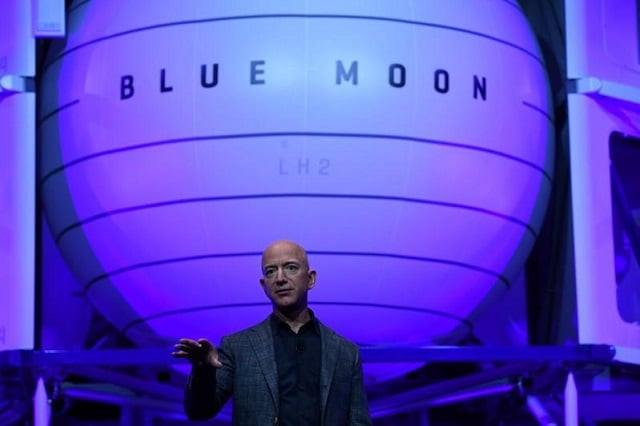Jeff Bezos's Blue Origin rocket makes 12th test flight
The rockets, tested since 2015, are re-usable, unlike those from the early spaceflight era

Founder, Chairman, CEO and President of Amazon Jeff Bezos unveils his space company Blue Origin's space exploration lunar lander rocket called Blue Moon during an unveiling event in Washington, US, May 9, 2019. PHOTO: REUTERS
The 60-foot-long (18-meter) suborbital rocket reached an altitude of 65 miles (105 kilometers), according to preliminary information, crossing the internationally recognized boundary of space known as the Karman line.
A capsule affixed to its summit will one day carry six astronaut passengers on a trip that lasts a total of 10 minutes and at a cost of half a million dollars.
NASA to open International Space Station to tourists from 2020
The rockets, tested since 2015, are re-usable, unlike those from the early spaceflight era. The one which flew on Wednesday had already completed five previous launches.
The booster fired its engines and made a controlled, upright landing back on Earth, while the capsule floated down to the ground minutes later aided by three parachutes, touching down in a cloud of dust.
The company had targeted late 2019 for its first flights with passengers on board, but that goal now appears all but impossible.
A black hole rips apart an unfortunate star
The other company engaged in the race for space tourism is Virgin Galactic, founded by British billionaire Richard Branson, which hopes to carry passengers to the boundary of space in a plane-shaped vessel that is dropped from a Boeing 747 jumbo jet at a high altitude.
Virgin has also said it is targeting 2020 for its first scheduled flights.



















COMMENTS
Comments are moderated and generally will be posted if they are on-topic and not abusive.
For more information, please see our Comments FAQ